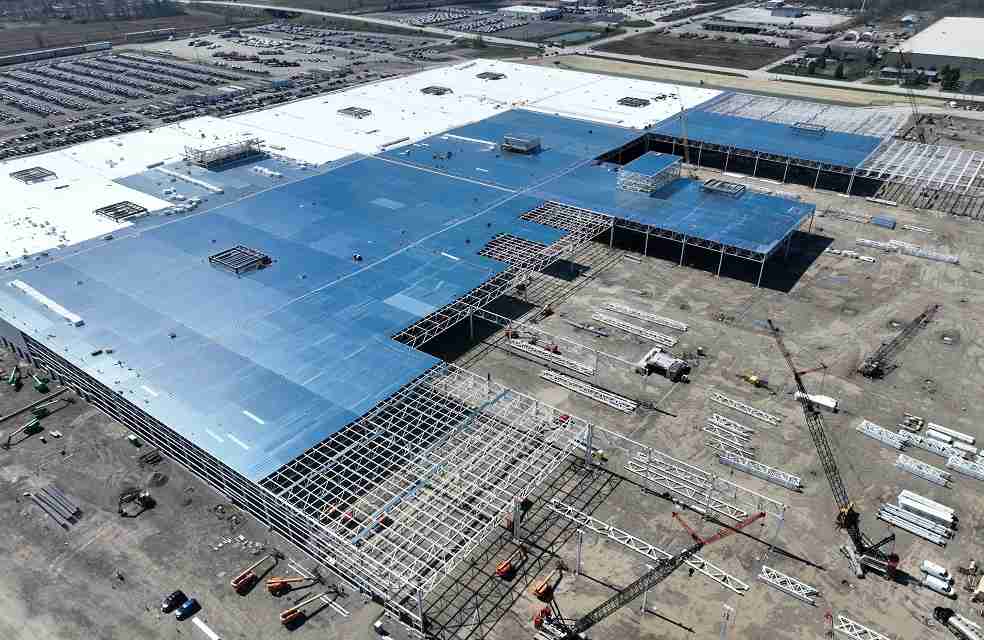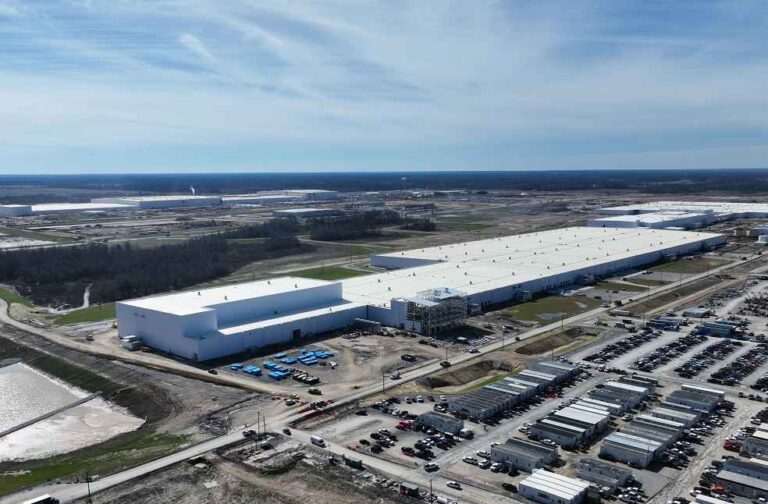Ford Motor Company announced today significant strides in its commitment to electric vehicle (EV) innovation and sustainability. At the heart of this commitment is the restructuring of its Oakville, Ontario assembly plant. Originally slated for the launch of new electric vehicles by 2025, the timeline has now been adjusted to 2027. This delay aligns with Ford’s strategic vision to synchronize with the evolving consumer market for three-row EVs and to leverage breakthroughs in battery technology for enhanced durability and value.
Jim Farley, President and CEO of Ford, emphasized the company’s dedication to establishing a profitable EV sector, underpinned by prudent capital utilization and timely market offerings across gas, hybrid, and electric vehicles. Ford’s sales in the first quarter of 2024 underscore this commitment, with EV sales soaring by 86% and hybrid sales by 42% compared to the previous year.
In Oakville, the transformation of the assembly plant from gas vehicle production to an EV manufacturing powerhouse is set to commence in the second quarter, as planned. Ford Canada’s President and CEO, Bev Goodman, reassured that despite the revised timeline, the company’s commitment to its Canadian workforce and manufacturing base remains steadfast. Collaborations with Unifor aim to mitigate the workforce impact due to the launch delay.

Ford’s ambitious blueprint for an electric future extends beyond Oakville. The development of the BlueOval City campus in Tennessee is progressing smoothly, with the installation of state-of-the-art equipment for the forthcoming all-new electric truck, expected to start customer deliveries in 2026. The Tennessee Electric Vehicle Center, epitomizing Industry 4.0, combines automation and connectivity to enhance production quality and efficiency. Prospective employees and the community are invited to engage with Ford’s innovative manufacturing through the soon-to-open Ford Tennessee Discovery Center in Brownsville, Tenn.
Moreover, Ford is expanding its Ohio Assembly Plant to accommodate the production of a new electric commercial vehicle for Ford Pro customers by the mid-decade. The facility’s upgrade incorporates advanced technology, including wearable devices for employees to bolster manufacturing quality and efficiency.

Ford is also forging ahead with the design of future-generation EVs. A skunkworks team in California, led by Alan Clarke, is pioneering a versatile EV platform, promising affordability and scalability for high-volume production. This initiative follows Ford’s acquisition of Auto Motive Power (AMP), enhancing its prowess in EV energy management.
Construction continues at BlueOval Battery Park Michigan and at BlueOval SK joint venture battery plants in Tennessee and Kentucky, underscoring Ford’s extensive investment in EV infrastructure and technology development.
Ford’s blueprint for the future signifies a monumental shift towards electrification, promising a comprehensive EV lineup that aligns with consumer demands and sustainability goals. As the second-ranked EV brand in the U.S., Ford’s strategies manifest a clear vision for a greener, more innovative automotive future.
AUTO TECH | Humax Teams Up with Uber Carshare to Revolutionize Car-Sharing Worldwide





